CST302 Personal Creed: Evangelical Beliefs and Personal Reflections
VerifiedAdded on 2022/09/26
|6
|1000
|22
Homework Assignment
AI Summary
This assignment presents a student's personal creed, reflecting on key theological concepts from an evangelical perspective. The creed begins by exploring the student's understanding of scripture, its inspiration, and authority, contrasting it with their personal views on truth and interpretation. It then delves into the nature of God, embracing the Trinity while acknowledging the roles the God takes. The assignment continues to address humanity and sin, examining the concept of original sin and the desire for virtue. The student's beliefs about the person and works of Jesus Christ are detailed, emphasizing his role as a teacher, sacrifice, and path to eternal life. Soteriology, ecclesiology, and eschatology are also discussed, with the student's views on salvation, the church's role, and the end times. The student integrates their personal reflections with evangelical teachings, providing a well-rounded exploration of their faith. References are also included.
1 out of 6
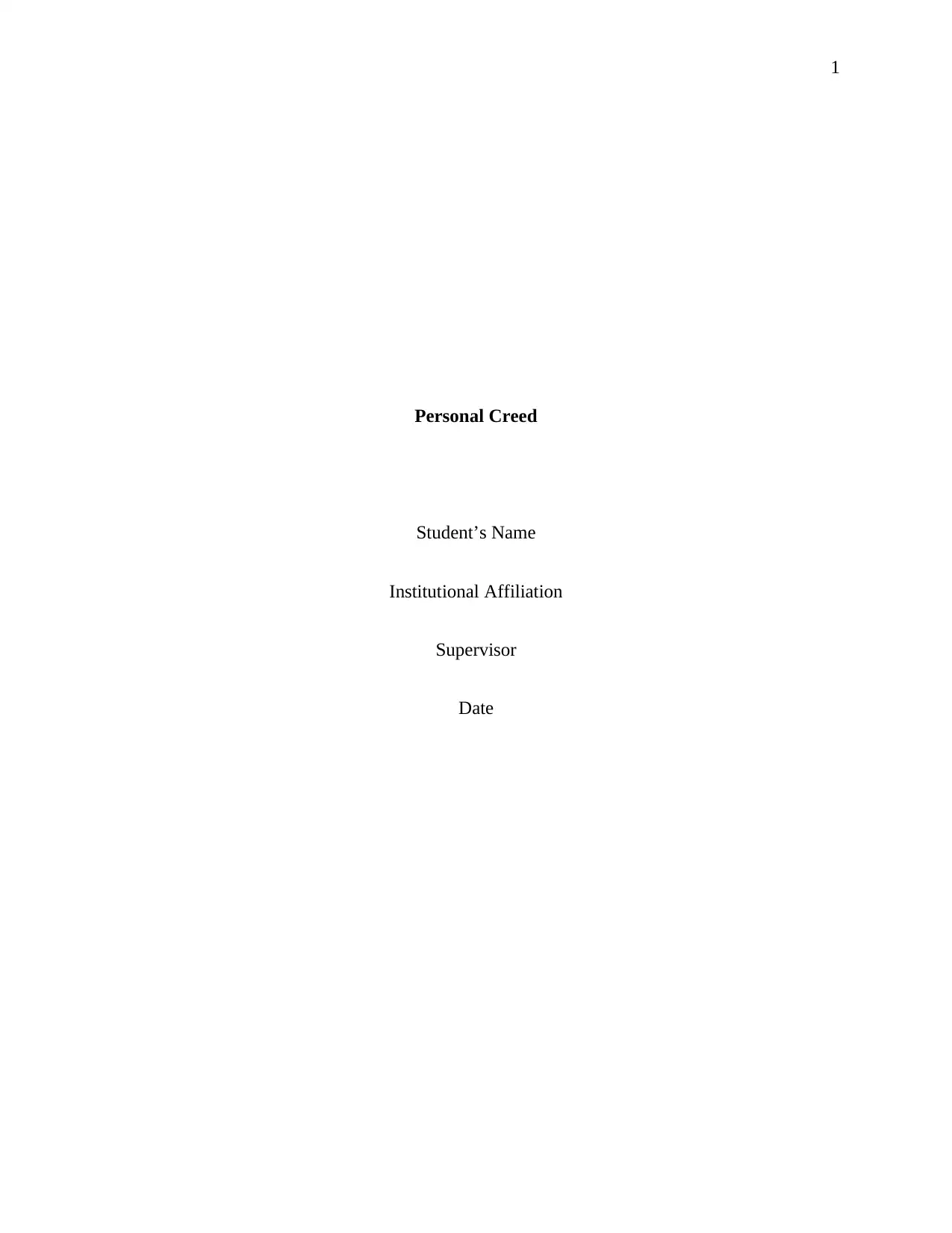
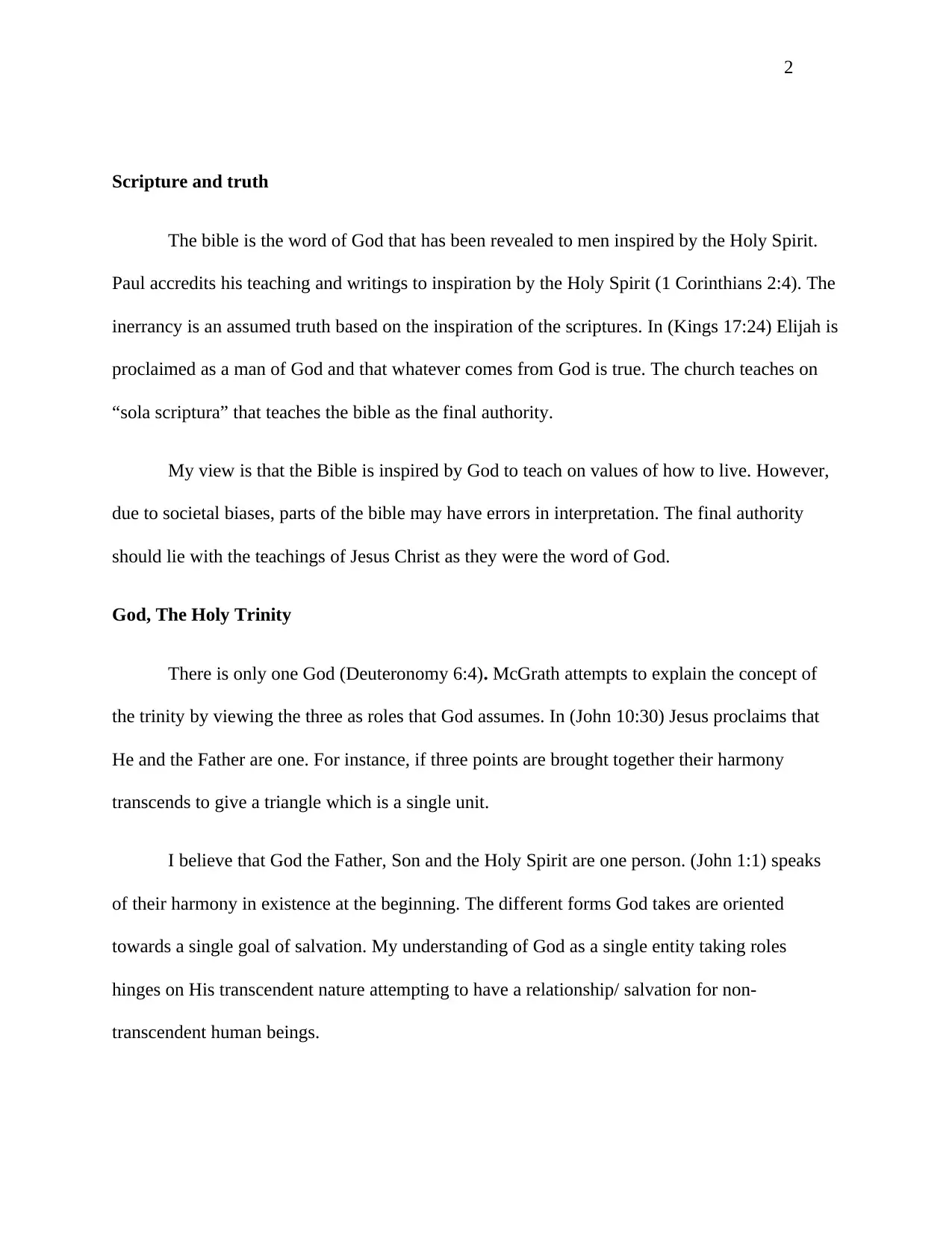
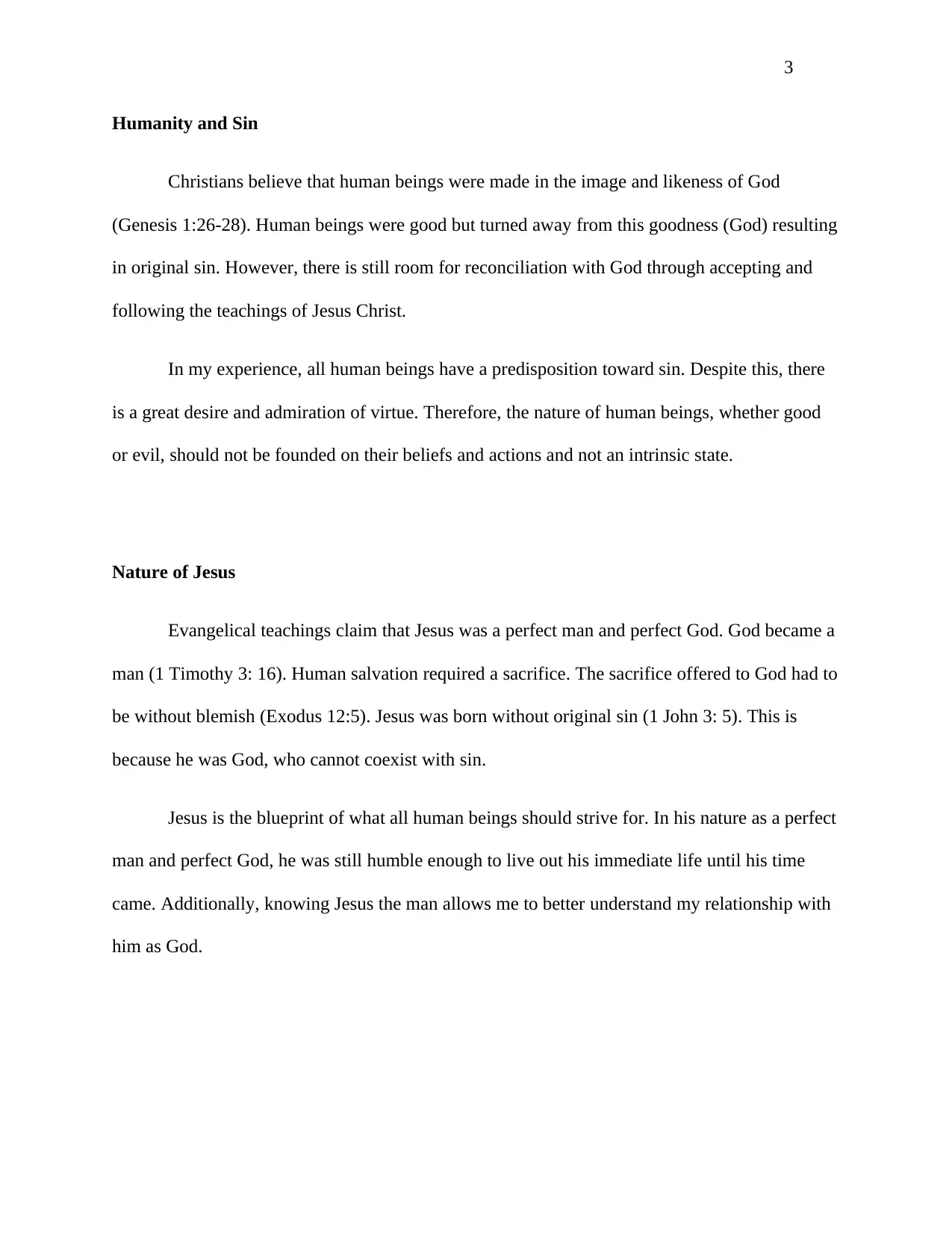

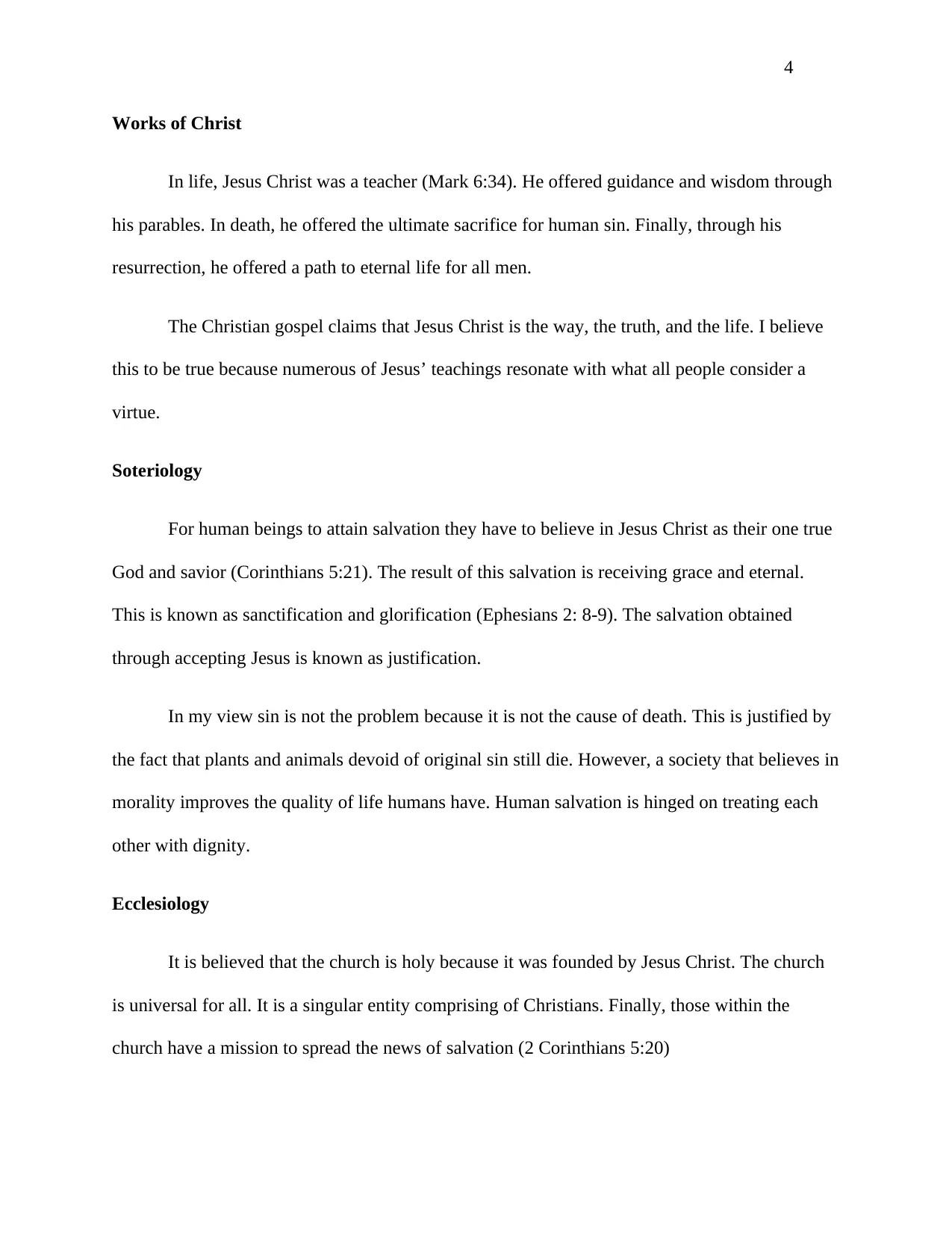
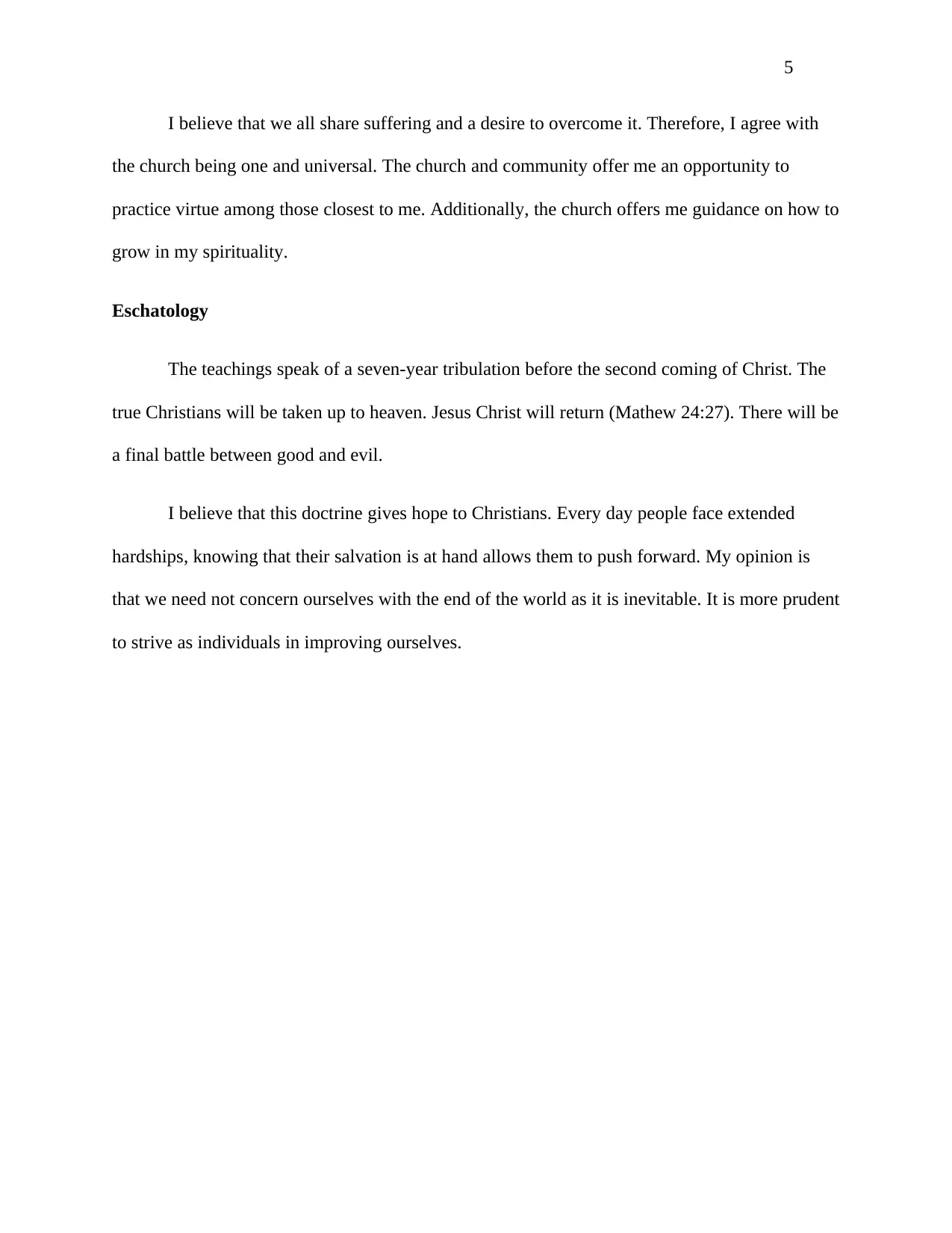







![[object Object]](/_next/static/media/star-bottom.7253800d.svg)